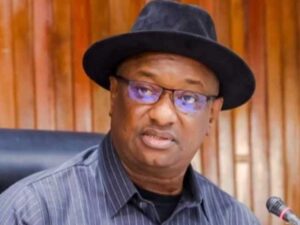

Nigerian Airlines struggle amidst economic turmoil
Nigeria’s airline operators have lamented significant obstacles hampering business operations, including forex scarcity, soaring Jet-A1 prices, and aircraft acquisition challenges due to country risk.
According to airline representatives, the current situation poses an existential threat as aircraft awaiting maintenance remain grounded due to forex shortages. This results in continuous equipment depletion without replenishment.
The airlines issued a stark warning that if this trend persists, the country may face a complete absence of operational aircraft for domestic services.
Professor Obiora Okonkwo, speaking on behalf of the airlines, urgently called for government intervention to prevent numerous airlines from going under.
He highlighted the instability in forex rates and the skyrocketing cost of aviation fuel, now at N1,300 per litre, as factors undermining their operational planning and creating uncertainty.
Furthermore, Professor Okonkwo, Chairman of United Nigeria Airlines, pointed out the substantial losses incurred due to the disparity in fuel prices and exchange rates.
“We are making losses on factors that are beyond our control. We are not only faced with the problem of scarcity of dollars; even the aviation ecosystem is feeling the heat. Handling companies have increased the cost of their services, airports have increased their charges and those that service the aircraft have also increased the cost of their services. The monies for these payments are coming from the passengers who are already exhausted financially,” he said.
He emphasized that beyond forex scarcity, increased costs from service providers within the aviation ecosystem further strain airline finances.
Okonkwo noted a significant decline in passenger traffic, attributing it to both economic challenges and changing social behaviours, such as preferring to send gifts rather than attending events in person.
“Passenger traffic has shrunk because even those on social engagement like weddings, burials and other ceremonies may not be inclined to spend money on flight tickets; they would rather send credit alert to those hosting the events who would appreciate such gestures. So, they pay instead of appearing in person,” he said.
The airlines seek government engagement and intervention to address the dire situation, emphasising the crucial role of air travel in economic development.
However, Okonkwo highlighted the challenge of attracting aircraft lessors due to perceived country risk, hindering fleet expansion and maintenance efforts.
He stressed the need for a special forex allocation to sustain airlines, as they require dollars for aircraft procurement, fleet maintenance, and spare parts.




